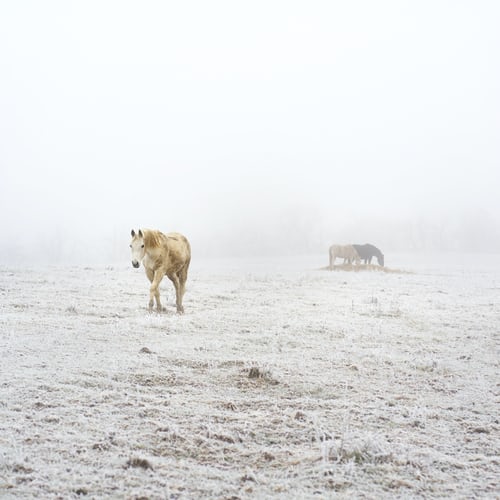Horses are animals who are usually found in the tropics and are less adapted for cold weather than some other mammals. Special care should be taken by horse owners who work or ride horses during winter and snowy weather as their health may be at risk due to the unique challenges presented to horses by colder weather. Horses with thicker coats are more suitable for winter work than horses with thinner coats as it acts as a thermal insulator. Nonetheless, horse owners would do well to equip horses with special cold weather gear and familiarise themselves with their usage to ensure that the health of their horse does not suffer during the winter.

The most common winter gear for horses are simply blankets. If the horse does not have a thick coat to insulate its body, it should be wrapped in a blanket to keep the cold out. If the horse does have a thick coat, a blanket may not be necessary, although if the weather is windy, a blanket may still help keep the wind away from the horse. Horses may slip on the snow and ice so ice boots for horses may be used to increase traction and keep their hooves safe when riding through snow or ice covered tracks during colder weather. It should be noted that the horse would sweat more than normal while under the blankets despite the cold, and the relatively low humidity during cold weather will mean that their sweat evaporates quickly, dropping their body temperature. However, this is less of a problem than the dehydration as a horse is more comfortable at around 15C than hotter weather. Therefore, ample water should be available and provided to horses. If the horse is working, it should stop at least every three hours to drink water, more so if the horse naturally sweats more often.
The shelter for the horse should insulate heat properly and be well ventilated. It should also be cleaned to ensure that urine and manure can create toxic air which may make the horse uncomfortable. The horse may also develop a chill if the stable is damp or invites dampness due to the snow and ice. Therefore, it should be well sheltered from falling snow, and should not hold water once snow melts.

The horse’s coat may periodically become wet due to the snow, which melt in its fur due to the body heat or due to its own sweat. The coat should be well dried by using moisture absorbent towels to prevent the horse from developing a chill. Rub the coat with an absorbent cloth in circular motions to absorb as much moisture as possible to the towel.
If there is snow that has not yet molten stuck in the fur, they should be brushed off using a bristle brush. Similarly, snow in the hooves and legs should also be brushed off. It is generally not advisable to ride in heavy snowfall as the horse may sink into the snow and injure itself. Being aware of the weather forecast may help in this regard.




